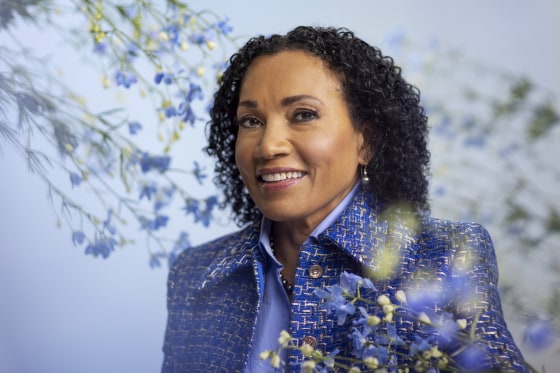If you ask Silicon Valley tech veteran Miriam Rivera about the greatest influence on her path to success, the answer might surprise you: “Sesame Street.”
Born to Puerto Rican parents in upstate New York, Rivera relied on Headstart and the iconic PBS show to learn English. “I spoke Spanish first,” she told ForbesWomen editor, Maggie McGrath. “Sesame Street was really one of the ways that my parents helped me learn English and get ready for school.”
Today, she sits on the Sesame’s board of directors, but that’s not her primary job. After receiving a JD-MBA from Stanford University, Rivera joined Google in 2001 as the tech giant’s second attorney, moving up the ranks as vice president and deputy general counsel before leaving in 2006.
Now, she is the cofounder and CEO of Ulu Ventures, a Palo Alto-based venture capital firm that specializes in early-stage investment of startups that might appear to be longshots but are ultimately very profitable.
Rivera, 60, made Forbes and Know Your Value’s 4th annual “50 Over 50” U.S. list this month, for her accomplishments in the investment category. The list celebrates women who have found success later in life and are shattering age and gender norms.
Since she founded the VC firm in 2008 with her husband Clint Korver, Ulu Ventures has consistently punched above its weight, managing $400 million in assets with a portfolio that includes ten current or recently-exited unicorns, including data startup Palantir, Guild Education, and fintech company, SoFi.
They key to the firm’s success — and its primary focus — has been strategically funding founders from underrepresented backgrounds.
“We did that by identifying talented people who were trying to pursue really big markets and also many of them want to do something that supports a positive social end,” Rivera told McGrath. “We looked particularly for teams that had diverse members, because there’s a lot of data that showed in public companies, diverse board members could actually generate greater profitability, and that’s what has turned out over the last 15 years to also be true of startup companies.”
Rivera’s intuitive investment philosophy stems from her own family’s journey, watching her mother and father build a life from scratch.
“My parents started off as migrant farmworkers, they moved from Puerto Rico to Florida, then they would work the crops between Florida and New York State,” she told McGrath. “A lot of the times lawyers have the worst hours of anyone … they say that they’re even worse than doctors these days. And my sense of that is nobody really works as hard as migrant farmworkers — so I knew that I was really blessed to be able to do the kind of work that I have done, both as an attorney and as a venture capitalist.”
Rivera’s goal of seeding underdog startups and turning them into unicorns speaks to the persistent underrepresentation of women, especially women of color, in venture capital, where women-led companies still only receive about 2 percent of VC dollars.
“Obviously women represent over 50 percent of the population [and] over 60 percent of the educated population in the United States,” she said. “That’s an example of how extreme the change is needed in terms of trying to increase representation in business. And it’s not going to happen with people who are opposed to investing in the most educated and the best.”
It’s a bias Rivera knows all too well on her path to becoming a VC founder. “When I first started to raise capital for Ulu Ventures, I asked an experienced venture capitalist for a referral to a limited partner, which is an investor who invests professionally in venture firms,” she told McGrath. “And he told me that venture capital was a young man’s game — I was really left astounded because I’d served on a board with this person, but he dismissed me out of hand.”
It wasn’t the first time Rivera overcame bias. Years earlier, she experienced similar discrimination as a new mother when she cofounder her first company.
“I had my daughter on Friday, I went back to work on Monday, and a few months later I was told that by a director, if it were his grandchild, he’d prefer the mother to stay home,” she recalled. “I was asked to leave my firm and that’s partly because a new set of venture capitalists were coming in, and they did not want a husband-wife team — my husband and I were cofounders at the time of this startup — I certainly felt that it was a bias against working women, and certainly marital status bias.”
Today, her resilience and persistence has paid off. Ulu Ventures is one of the largest, if not the largest, Latina-led firms in the country. Rivera considers the company her greatest over 50 achievement and has this to advice for women looking to succeed in the industry.
“I think it’s really important for people to identify a place where they will be given a fair shot, and to find the right investors and the right supporters,” she said. “If you don’t do that, I don’t think you can build a great career.”
